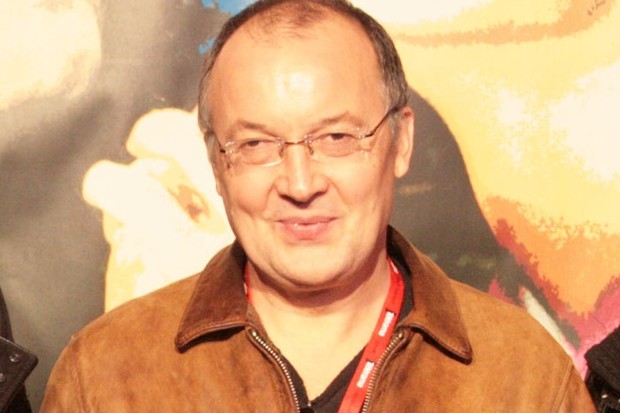Philippe Faucon • Director
"Creating real, live characters"
- CANNES 2015: We met up with French filmmaker Philippe Faucon to discuss his highly successful Fatima, which was unveiled in the Directors’ Fortnight at Cannes

A sensitive and sharply observed portrait of a mother, and a thorough, stripped-down analysis of the daily reality of integration and her hopes and dreams, Fatima [+see also:
film review
trailer
interview: Philippe Faucon
film profile] was presented in the Directors’ Fortnight of the 68th Cannes Film Festival. We met up with director Philippe Faucon just after the movie had its world premiere.
Cineuropa: Fatima is adapted from two books by Fatima Elayoubi. Why did they inspire you to want to make a film out of them?
Philippe Faucon: It was the producer, Fabienne Vonnier, who suggested this project to me. But above all, it was when I met the author that I understood. She’s an extraordinary character. She followed her husband to France, without even being able to speak French. Because of this, she only had access to jobs that were pretty undervalued, and while in France, she gave birth to two daughters who have spoken French ever since they were born. The things she needed to say, the things she didn’t have a way of expressing to her daughters in French, she began to write down in notebooks, in Arabic. The film talks about this woman’s need to find a way to communicate with her daughters, but also to find an escape from the way people look at her, and to declare to the society she lives in that she is not only that woman labelled as a cleaning lady, who doesn’t speak French, is an immigrant, is ignorant, and who has a rather tedious and repetitive life. She wishes to express what she is, what she brings to the society she has been brought to, and what she wants for her children. For these reasons, this project came along as a kind of “reverse shot” to my previous film. While I was filming La désintégration [+see also:
trailer
film profile], we often used the phrase “a tree that falls makes more noise than a forest that is growing”. I told myself that I also needed to tell the story of the forest that is growing. And I came across the character of Fatima.
Pressure lies at the heart of the problems experienced by the three main characters: pressure to succeed in communicating, to succeed in one’s studies and to succeed in overcoming social disgrace.
Fatima has this almost obsessional longing for her children not to follow the same path as the one she took, which comes with this feeling of alienation. So she steels herself, sometimes even a bit too rigidly when it comes to her youngest daughter, whom she tries to help at school, particularly by going along to the parents’ evenings, even though she is sometimes enveloped in this fog of words that she doesn’t understand. She also devotes all her efforts to supporting the first steps that her eldest child is taking at university. And so her eldest daughter finds herself carrying a burden of hope and this enormous demand placed on her by her mother: she can’t not succeed, because she is aware of the sacrifices her mum has made. This stubbornness of those people who have set out to establish a place for themselves, which is not easy for them and not secured in advance, is something that really speaks to me because that stubbornness is also present in my family history.
How did you manage to be delicate in your approach to a subject that could easily lend itself to an overload of emotion?
You’re walking a tightrope when you risk taking on a beautiful story, a rather enlightening story. What we needed to do was create real, live characters that you believe in, characters made up of complexity and contradictions. We had to try hard to prompt that in the union between the characters and their actors so that they are brought to life in a realistic way and go beyond the stereotypes. And when we’re talking about non-professional actors or very young performers, you have to understand where that meeting point between the character and the actor is. You cannot ask them to do things they’re not capable of or test them. On the other hand, they have a treasure to be found inside of them, a life story, a kind of authenticity – and these are exactly the qualities we needed for these characters, and which more seasoned actors perhaps would not have been able to draw on, as despite their experience, they would have been less in touch with the situations portrayed.
What were your intentions when it came to directing?
Putting the directing utterly at the service of embodying the characters, and not standing in the way of whatever would let the actors bring them to life. It wasn’t about directing just for the sake of directing, incorporating complicated elements that would have restricted their freedom.
(Translated from French)
Did you enjoy reading this article? Please subscribe to our newsletter to receive more stories like this directly in your inbox.















